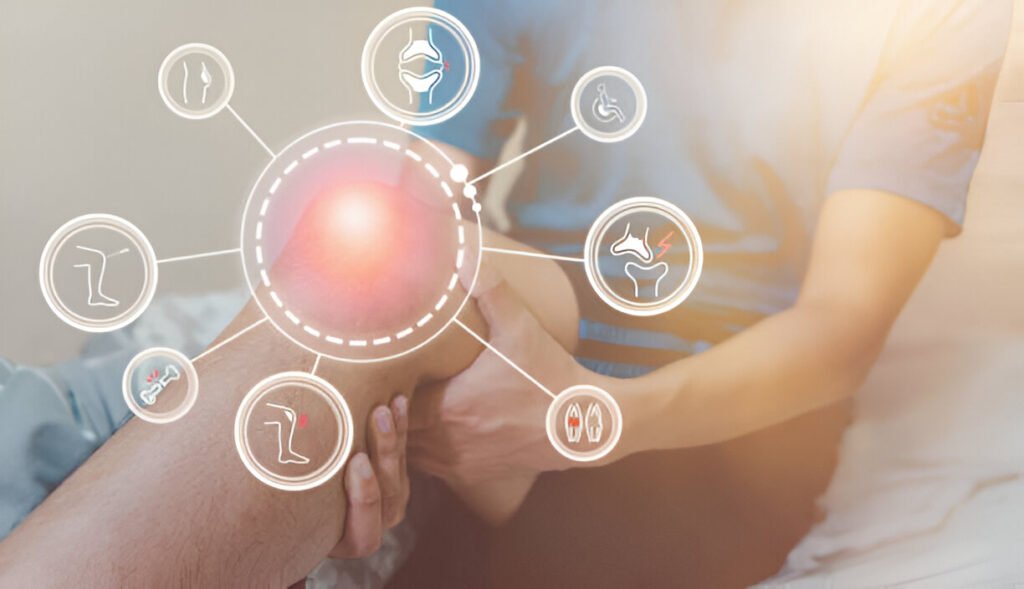Key Takeaways
- Holistic health combines traditional and alternative therapies for effective pain management.
- Instead of treating just the symptoms of disease, integrative medicine addresses its fundamental causes.
- Evidence-based alternative therapies can complement conventional medical treatments.
- Nutrition, lifestyle changes, and mind-body practices are significant in holistic healthcare.
Introduction to Holistic Pain Management
Around the world, millions of people have chronic pain, which frequently prompts them to look for several types of treatment. Combining conventional medicine with complementary therapies, holistic pain management provides a complete approach. This integrated strategy aims to treat the entire person, not just the symptoms, for long-lasting results. Clinics such as the Osteopath Clinic Colorado often employ these holistic methods, ensuring a balanced approach to pain relief. To provide patients with a comprehensive and individualized treatment plan, it is essential to address not only the physical but also the emotional and mental elements of chronic pain.
Holistic strategies, which combine various treatment methods like nutritional guidance, lifestyle modifications, physical therapy, and mindfulness practices, have been proven to reduce pain medication dependency, minimize side effects, and promote overall wellness.
What is Integrative Medicine?
Integrative medicine combines traditional medical treatments with alternative therapies like acupuncture, chiropractic care, and herbal medicine to address chronic pain’s root causes and promote overall well-being. It involves understanding a patient’s lifestyle, emotional state, and medical background to develop a customized care strategy. This approach alleviates symptoms and prevents recurrence by promoting a healthier lifestyle and mental balance. It treats the person as a whole, focusing on avoiding pain recurrence rather than just targeting specific pain points.
The Role of Nutrition and Lifestyle
To reduce chronic pain, holistic healthcare relies on a well-balanced diet high in foods high in omega-3 fatty acids, nuts, and leafy greens. Sleeping well and exercising frequently lead to a more muscular body that is better able to handle pain. Omega-3 fatty acids in fish and antioxidants assist in battling free radicals in fruits and vegetables, which can cause persistent pain. Proper hydration, physical activity, and rest enhance the body’s recovery and management of pain. A holistic approach to good food, movement, and rest is the cornerstone of effective pain management.
Mind-Body Practices
Mind-body practices like yoga, meditation, and biofeedback help manage pain by teaching patients to control physiological responses, reducing intensity, and improving quality of life. Meditation promotes relaxation and reduces stress, while yoga strengthens the body and calms the mind, reducing pain perception and depressive symptoms associated with chronic pain. Biofeedback helps patients gain awareness and control over physiological functions through real-time feedback from monitoring devices. These routines can significantly enhance pain management techniques when adopted into everyday life.
Evidence-Based Alternative Therapies
Alternative treatments, including chiropractic adjustments and acupuncture, have demonstrated encouraging outcomes in treating chronic pain. These therapies complement traditional medical treatments, offering a multifaceted approach to pain relief. Acupuncture, an ancient Chinese practice, involves using tiny needles at particular bodily locations to stimulate energy flow and promote healing. Numerous studies have validated this method, gaining widespread recognition for its ability to treat pain effectively. Chiropractic care, focusing on diagnosing and treating musculoskeletal disorders, particularly those related to the spine, involves adjustments and manipulations performed by trained chiropractors. These therapies provide an integrative approach to pain management.

















